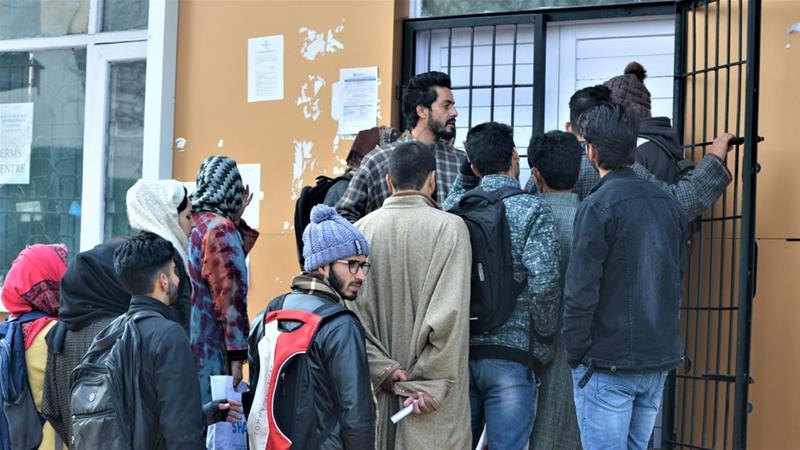Alwaght- New Delhi ordered the restoration of low-speed mobile internet in Indian-controlled Kashmir, allowing access only to just 300 "whitelisted" websites.
According to Al Jazeera, the order to restore second-generation (2G) mobile internet and data services, issued late on Friday, ended the longest such outage in any democracy. It was imposed nearly six months ago following the abrogation of the disputed region's autonomy.
"Mobile data services and internet access through fixed line shall be allowed through the Union Territory of Jammu and Kashmir with some restrictions," said a notification issued by the federal territory's home department.
The order said internet access will remain limited to "only whitelisted sites" and social media applications that allow "peer to peer communications and Virtual Private Networks [VPN] applications" will remain banned.
Internet and phone services in Indian-administered Kashmir were snapped on August 5 after India stripped the Muslim-majority region of its limited autonomy by scrapping Articles 370 and 35A of the country's constitution.
For the last 70 years, the two legislations had protected the demography of the disputed region, home to more than seven million people and claimed by both India and neighbouring Pakistan in its entirety.
Supreme Court ordered review
Fearing protests over the scrapping of the Himalayan region's autonomy, India's Hindu nationalist government in August sent in tens of thousands of extra troops, arrested dozens of political leaders, and imposed a crippling military and communications clampdown.
While most restrictions were eased in a phased manner, the internet shutdown continued.
On January 10, India's Supreme Court asked the government to "review all orders suspending internet services" and ruled that the indefinite suspension was "impermissible".
"Suspension of free movement, internet and basic freedoms cannot be an arbitrary exercise of power," the court said.
Friday's order to restore internet access followed the court's ruling and will be reviewed on January 31.
But the order restricts access to a minuscule list of 300 websites, including banks, some news portals, educational institutions, utilities, travel and food delivery applications. Social media remains offline.



























